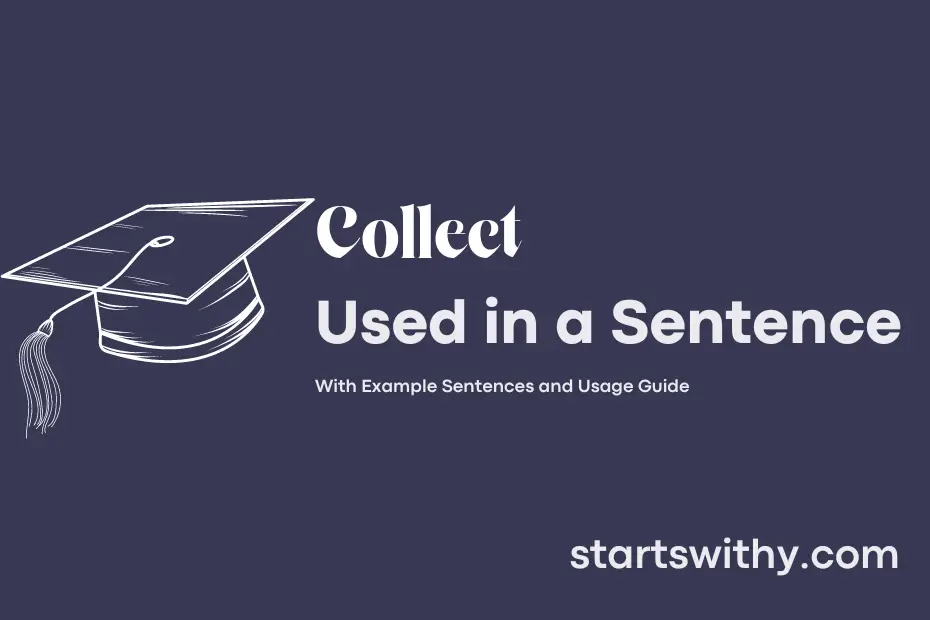Ever wondered how to accurately employ the verb “collect” in a sentence? “Collect” is a versatile word that signifies gathering things or people together, often with a common purpose.
It can be used in various contexts to indicate assembling objects, amassing information, or even accumulating emotions. Learning to construct sentences with “collect” can enhance the clarity and expressiveness of your communication.
7 Examples Of Collect Used In a Sentence For Kids
- Collect all the red toys from the box.
- Let’s collect all the marbles in a jar.
- Collect all the pencils on the table.
- Can you collect the blue blocks for me?
- We need to collect the leaves for our project.
- Collect the yellow flowers from the garden.
- Please collect all the buttons in a bowl.
14 Sentences with Collect Examples
- Students need to collect their admit cards before the exam.
- Make sure to collect your books from the library before it closes.
- Don’t forget to collect your marksheet from the college office.
- You should collect data from reliable sources for your research project.
- It’s important to collect notes from classmates if you miss a lecture.
- Remember to collect your project materials from the lab.
- You can collect your study materials from the photocopy center.
- Make sure to collect your ID card from the security office.
- Don’t forget to collect your internship certificate before leaving.
- Students must collect their hostel keys from the warden upon arrival.
- You can collect your study materials from the college bookstore.
- Ensure to collect your participation certificate from the event coordinator.
- It’s essential to collect feedback from your peers for your group project.
- Remember to collect your exam answer sheets from the professor.
How To Use Collect in Sentences?
To use the word “Collect” in a sentence, you can follow these simple steps:
-
Identify a group of items or data that you want to bring together. This could be physical objects, information, or even thoughts.
-
Decide on the purpose of your collection. Are you gathering items for a specific project, or are you organizing information for future reference?
-
Choose a verb that best fits the context of your sentence. Here are a few examples:
- For physical objects: “I will collect seashells at the beach.”
- For data or information: “She will collect data for her research paper.”
- For emotions or thoughts: “He will collect his thoughts before responding.”
-
Make sure to place the word “Collect” in the appropriate position within your sentence. Typically, it is placed after the subject and before any objects or additional information.
-
Practice using “Collect” in different sentences to become more comfortable with its usage. You can create both simple and complex sentences to enhance your understanding.
By following these steps, you can effectively incorporate the word “Collect” into your writing and communication. Remember to pay attention to the context of your sentence and choose the most suitable form of “Collect” to convey your message clearly.
Conclusion
In conclusion, “collect” is a versatile verb that often refers to the act of gathering or accumulating items or information. Whether it’s coins, data, or memories, the concept of collection is common in various contexts. For example, individuals collect stamps, libraries collect books, and researchers collect data for analysis. Through the different examples provided, it is clear that collecting is a widespread activity that satisfies curiosity, preserves culture, and aids in research and study.
Overall, the variety of sentences using the keyword “collect” showcase its broad usage and the importance of gathering things or information in our daily lives. From personal hobbies to professional endeavors, collecting plays a significant role in organizing, preserving, and understanding the world around us.



